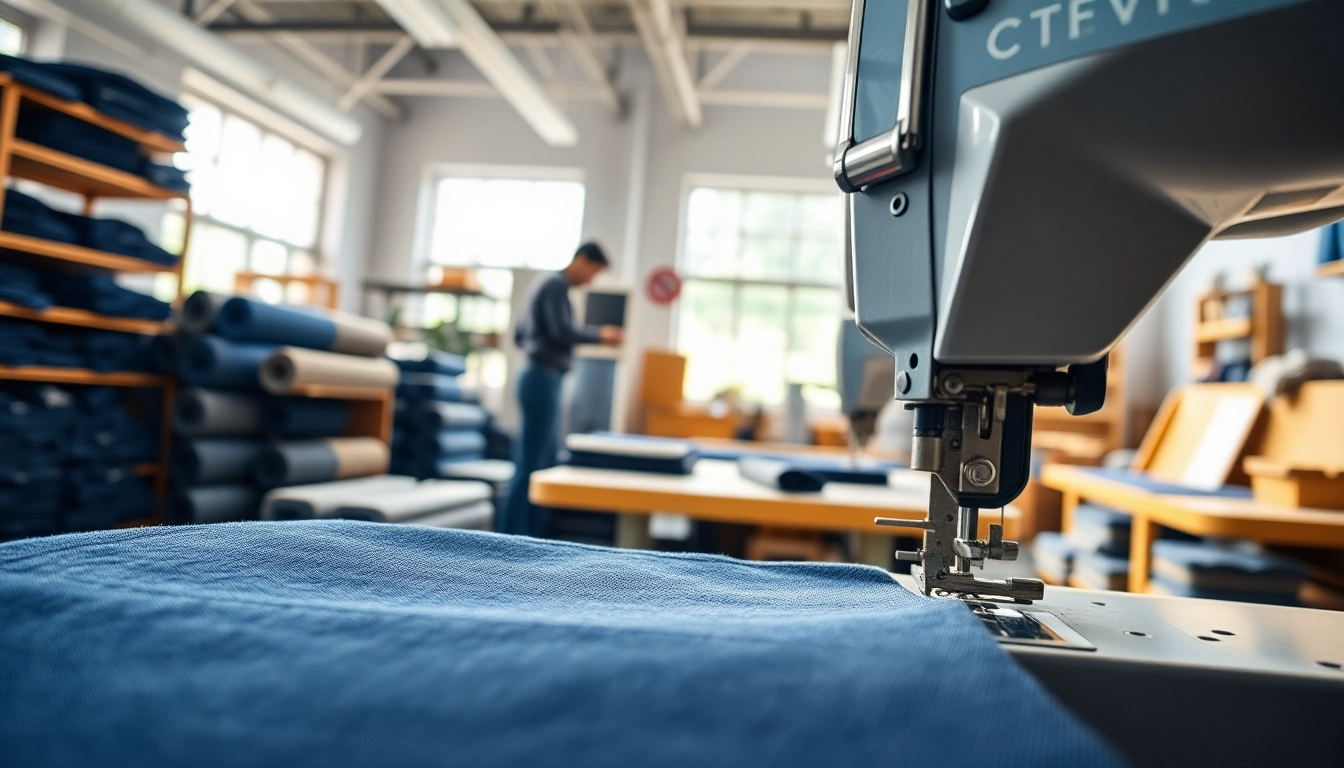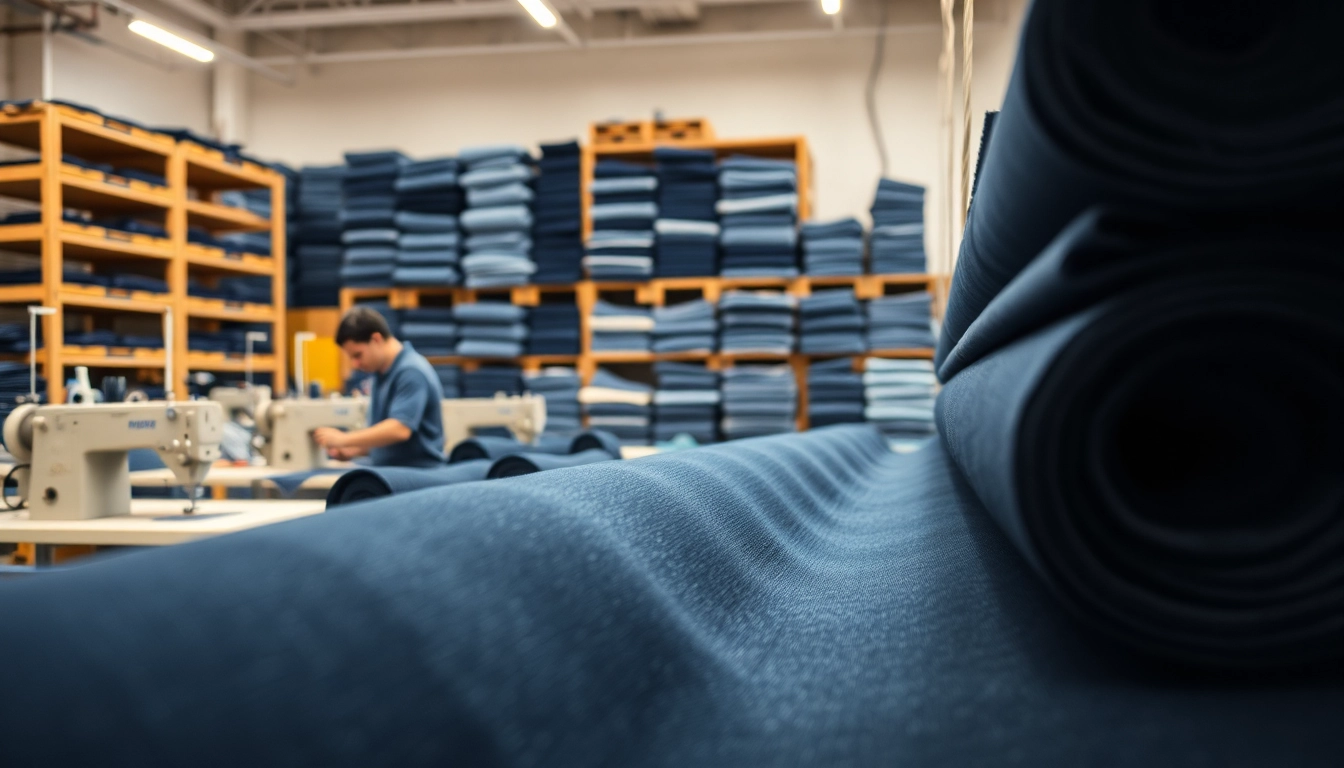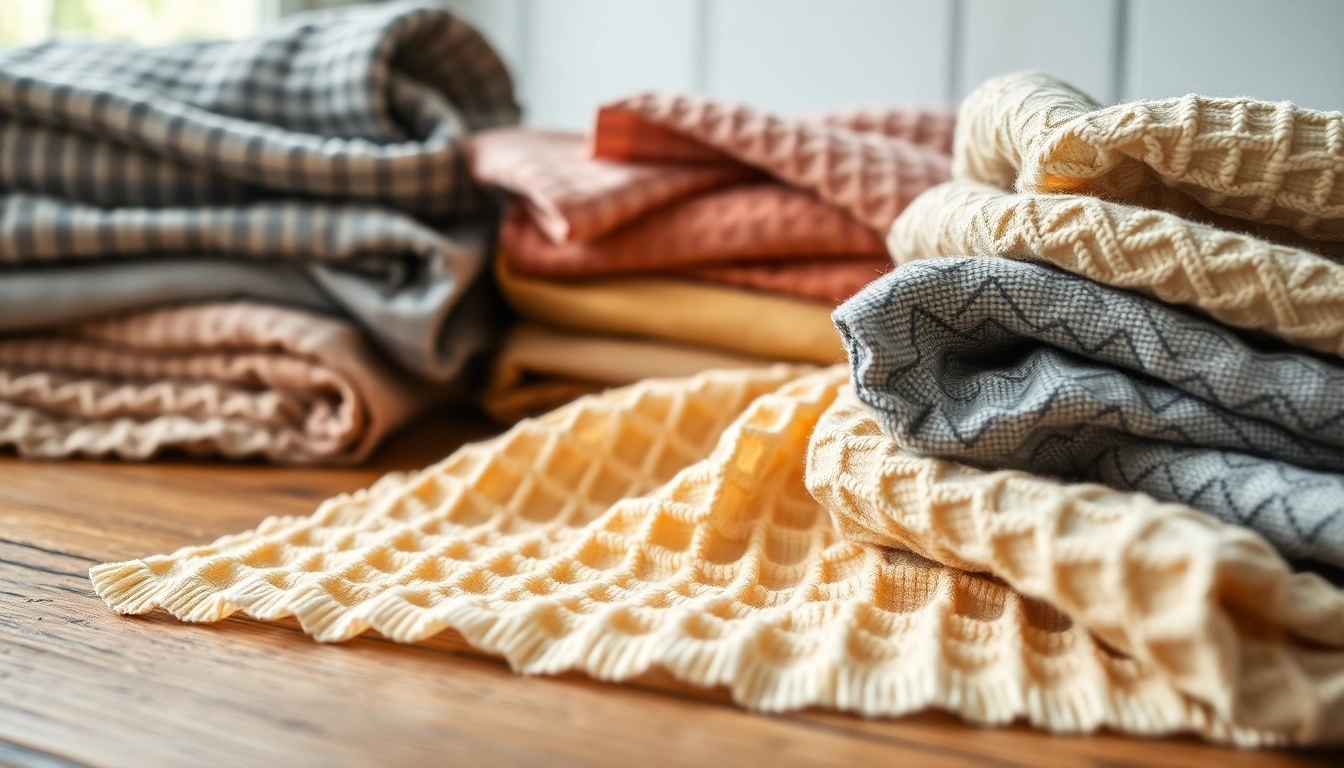Understanding the Denim Industry
The denim industry plays a pivotal role in global fashion, characterized by a diverse range of products and a rich history that spans centuries. As an essential fabric, denim is not just a fashion statement; it has become a cultural icon across the world. For those interested in jeans cloth manufacturers, understanding the nuances of this industry is crucial. This article delves into the evolution, trends, and types of fabrics, providing insights for stakeholders ranging from manufacturers to consumers.
The Evolution of Jeans Cloth Manufacturers
Dating back to the 19th century, denim was originally developed for workwear, prized for its durability and versatility. Over the decades, jeans transformed from functional attire to high-fashion garments. The increase in demand sparked a significant rise in jeans cloth manufacturers, with production now spanning multiple countries and utilizing advanced technologies.
In recent years, the rise of digital manufacturing has further revolutionized the industry, allowing for custom designs and on-demand production. Brands are now able to meet consumer demands rapidly while ensuring higher levels of quality control.
Key Trends in Denim Production
Numerous trends are shaping the future of denim manufacturing, significantly influencing processes and consumer preferences:
- Sustainable Practices: A growing interest in eco-friendly practices has led many manufacturers to explore sustainable materials, such as organic cotton and recycled fibers. This shift not only helps reduce the environmental impact but also appeals to the environmentally conscious consumer.
- Customized Products: The rise of personalization has allowed consumers to specify their design features, such as fits, washes, and finishes, presenting manufacturers with opportunities for bespoke offerings.
- Technological Advancements: Innovations such as digital printing and laser technology in denim production have streamlined processes, reduced waste, and enhanced creative possibilities.
Types of Denim Fabrics Used
Understanding the different types of denim fabrics is essential when sourcing from jeans cloth manufacturers. Here are a few common types:
- Selvedge Denim: Known for its tightly woven edges, selvedge denim showcases a premium quality that appeals to denim aficionados. This type of fabric is typically produced on traditional shuttle looms and often seen as more durable.
- Stretch Denim: Manufactured with elastane or spandex blends, stretch denim provides comfort and flexibility, making it ideal for various styles, including skinny jeans.
- Raw Denim: Untreated and unwashed, raw denim offers a unique wearing experience, evolving as it ages, making it increasingly popular among enthusiasts who appreciate the personal touch in wear patterns.
Identifying Quality Manufacturers
When selecting jeans cloth manufacturers, quality assurance is paramount. This section highlights critical factors to consider during the evaluation process.
What to Look for in Jeans Cloth Manufacturers
Identifying a reliable manufacturer involves assessing several key attributes:
- Experience and Reputation: A manufacturer’s experience can significantly correlate with quality. Longstanding companies often have established processes and reliable sourcing methods.
- Quality Certifications: Look for manufacturers with certifications from recognized bodies, indicating adherence to quality standards such as ISO or OEKO-TEX.
- Client Testimonials: Feedback from previous clients can provide insights into a manufacturer’s capabilities and reliability.
Evaluating Production Capabilities
Understanding a manufacturer’s production capabilities helps in determining whether they can meet your specific requirements. Key areas to explore include:
- Minimum Order Quantities (MOQs): Assess whether the manufacturer can accommodate your order size, whether large or small.
- Flexibility and Scalability: Gauge the manufacturer’s ability to adapt to changing demands, including seasonal shifts or unexpected surges in orders.
- Turnaround Times: Timeliness is crucial in the fashion industry, so it’s essential to know the expected lead times for production and delivery.
Understanding Ethical Manufacturing Practices
Ethical practices are gaining increasingly importance in the denim industry. Manufacturers should adhere to fair labor standards, create safe working conditions, and ensure environmental responsibility.
To ensure alignment with ethical manufacturing, consider the following:
- Transparency: A reputable manufacturer will provide visibility into their production processes and labor practices.
- Certification: Look for certifications related to fair labor practices or sustainable production, like Fair Trade or GOTS.
- Community Engagement: Manufacturers who invest in local communities often possess a strong commitment to ethical governance.
Building Strong Relationships with Manufacturers
Establishing strong relationships with jeans cloth manufacturers can lead to increased collaboration and improved outcomes. This section discusses effective strategies for nurturing these partnerships.
Communicating Effectively with Jeans Cloth Manufacturers
Effective communication is the cornerstone of any successful partnership. Here are some strategies to enhance communication:
- Regular Updates: Maintain open lines of communication with frequent updates on orders and expectations.
- Clear Documentation: Utilize formal documentation for all agreements, clarifying responsibilities and expectations.
- Feedback Loops: Establish mechanisms for providing and receiving feedback, which can lead to continuous improvement.
Navigating Contracts and Agreements
Contracts play a pivotal role in defining the terms of engagement. Ensure the following aspects are covered:
- Scope of Work: Clearly outline the manufacturer’s responsibilities, including deadlines, product quality, and delivery terms.
- Payment Terms: Define payment schedules and conditions to avoid misunderstandings.
- Dispute Resolution: Outline the process for resolving disputes to protect both parties’ interests.
Long-term Partnership Benefits
Developing long-term partnerships with jeans cloth manufacturers can yield significant advantages:
- Consistent Quality: Long-term relationships often lead to a deeper understanding of expectations, resulting in better quality control.
- Cost Efficiency: Established relationships can lead to negotiation opportunities for better pricing and terms.
- Collaborative Innovations: Working closely encourages the development of new products and innovations that benefit both parties.
Common Challenges with Jeans Cloth Manufacturers
Working with jeans cloth manufacturers comes with its own set of challenges. Identifying potential issues early can help navigate these hurdles effectively.
Addressing Quality Control Issues
Quality control remains a significant concern in denim manufacturing. To minimize issues, consider the following steps:
- Establish Quality Standards: Clearly define quality metrics that align with your brand’s expectations.
- Conduct Regular Inspections: Schedule routine quality checks throughout the production process to catch issues early.
- Feedback Systems: Implement a feedback mechanism with your manufacturers to address quality issues swiftly and effectively.
Managing Lead Times and Deliveries
Lead times can often affect market competitiveness. Strategies to manage lead times include:
- Advance Planning: Anticipate demand and plan orders ahead to avoid production bottlenecks.
- Buffer Stock: Maintain a buffer stock of popular items to accommodate unexpected demand spikes.
- Communicate Regularly: Keep lines of communication open with manufacturers about production statuses and potential delays.
Adapting to Market Changes
The fashion industry is notoriously volatile, which can pose risks to manufacturers. To navigate market changes effectively:
- Market Research: Continuously analyze market trends and consumer preferences to stay ahead of the curve.
- Flexible Production: Choose manufacturers capable of adapting production lines quickly to respond to emerging trends.
- Stay Informed: Participate in industry events and networks to keep abreast of market shifts and innovations.
Future Outlook for Jeans Cloth Manufacturers
As the denim industry continues to evolve, manufacturers must embrace change to remain competitive. This section explores future trends and innovations shaping the industry.
Technological Innovations in Denim Production
The incorporation of technology in denim manufacturing is likely to expand, introducing efficiencies:
- 3D Printing: The potential of 3D printing may revolutionize production capabilities, allowing for rapid prototyping and customized designs.
- Blockchain Transparency: Implementing blockchain technology can ensure transparency in sourcing materials and production processes.
- Smart Fabrics: The development of smart textiles, integrating technology into denim clothing, will create functional products with a wide range of applications.
Sustainability Trends Affecting Manufacturers
Sustainability is set to shape the future of denim manufacturers profoundly:
- Chemical-Free Processes: Manufacturers will increasingly adopt dyeing and finishing processes that minimize is harmful chemicals.
- Circular Economy Practices: Brands committed to a circular economy will focus on recycling and upcycling denim products to reduce waste.
- Consumer Educational Initiatives: There will be growing efforts toward educating consumers about sustainable practices, creating demand for ethical products.
Market Predictions for Apparel Manufacturers
The future of jeans cloth manufacturers also hinges on broader market dynamics:
- Increasing Demand for Online Retail: Online shopping’s surge will compel manufacturers to accommodate digital platforms effectively.
- Shift Towards Minimalism: As trends shift towards minimalist styles, manufacturers may need to focus on versatility and utility in denim designs.
- Diverse Market Penetration: Manufacturers are likely to explore emerging markets while consolidating their positions in established regions.



